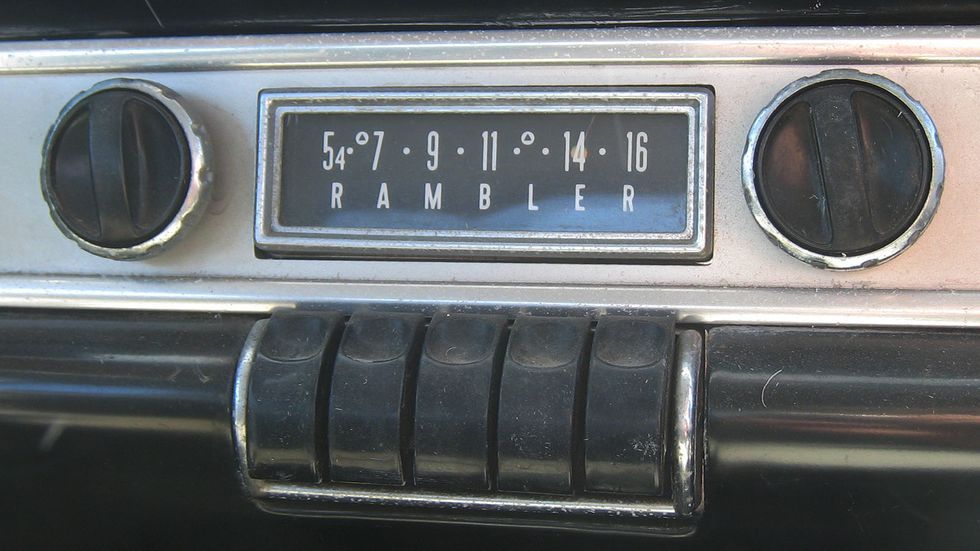Old Men and the Sea
December 2, 2021
The bartender put my bourbon on the rocks in front of me. I prefer glass instead of plastic, but this was Key West, and the drinks are made to be carried onto the street in the event you care to wander. I took a sip and looked out across the room. People were seated at tables eating and drinking, talking, and listening to the man who sat alone on stage with his guitar, covering pop-rock.

It was the last day of a week-long fishing trip with friends. This was my first time joining them on their annual trip to the Keys, and I wanted to take a few moments to have a drink in the same bar as the legend whose pictures surrounded the mounted blue marlins hanging on the walls. Ernest Hemingway. The bar was Sloppy Joe’s. Hemingway was a frequent patron when he lived in Key West in the 1930s. His friend and boat captain, Joe Russell, owned the bar.
Hemingway loved to hunt marlin and tuna. We didn't catch any of either, but we loaded the cooler every day with yellowtail and mutton snapper and the occasional mackerel and rainbow runner. I have fished all my life, but this was my first venture on the open sea. Miles from shore, over reefs and shipwrecks, working the current with a charter crew. Although the gear is similar, ocean fishing differs somewhat from freshwater. It’s less about setting a hook and cranking it in, as it is about a give and take. It is working at getting the fish to the surface before it can bury itself in the rocks or before a predator beats you to your catch, but not so hard and fast that you break the line.
Hemingway holds a prominent place in literary history. Over half a century after his death in 1961, his novels and short stories are still read, studied, and praised for their style and compelling narrative. His prose concentrated. Mostly nouns and verbs with few adjectives and adverbs. Powerful in its understatement. A way of writing many try to imitate but few able to replicate. His life story is painted across a broad canvas. Married four times, an outdoorsman, journalist, freedom fighter, world traveler, resident of Cuba, and believed spy for both the United States and Russia, his biography reads like a larger-than-life adventure novel before its tragic end. Hemingway took his own life after a battle with mental illness that included electroshock therapy. Many authors have taken a run at trying to capture his personal story, and this year Ken Burns released a six-hour PBS documentary series on Papa Hemingway’s life.
Hemingway not only fished and wrote about it, but he played a large part in shaping the sport through tackle design and techniques. On my first fish the first day, the captain coached me to raise the rod and then reel down in an even steady motion. This technique is called "pumping the fish" - raising and lowering the rod, reeling in the slack, using your back and legs to defeat the fish. I later learned the technique was perfected by Hemingway.
As I enjoyed my bourbon, eyes roving over Hemingway photos and memorabilia, I thought about the week. Days on the water, cheering each other on as another fish came over the transom. Nights on the dock exchanging stories and laughs until the beer, the food, and the day's fishing weighed too heavy to stay awake. Although I write and fish - and drink - I don't in any way compare myself to Hemingway. But at that moment, I fully understood why Hemingway kept returning to the sea. The hunt, the battle, victory and defeat, the camaraderie, and the promise of more.
It had been thirty years since I read The Old Man and the Sea, the 1952 short novel that earned Hemingway the Pulitzer Prize for fiction, but the book called out to me in his old hangout. I downloaded it and re-read it on the first leg of the journey home. It's the story of an old fisherman and his solitary battle with a giant marlin in the Straits of Florida. Some say it’s a metaphor for the powerful and unpredictable aspects of nature. In its simplest form it is the tale of an old man who finds peace on the water and energy in the game between man and fish.
Like me. And Hemingway.
And just like Hemingway, I will return to the waters again and again. For just like Papa and the old man for whom he wrote these words, I believe:
“My big fish must be somewhere.”
Like what you read?
Subscribe to my mailing list and get notifications to your inbox when my next blog post goes live.
Contact Us
More By Joe


